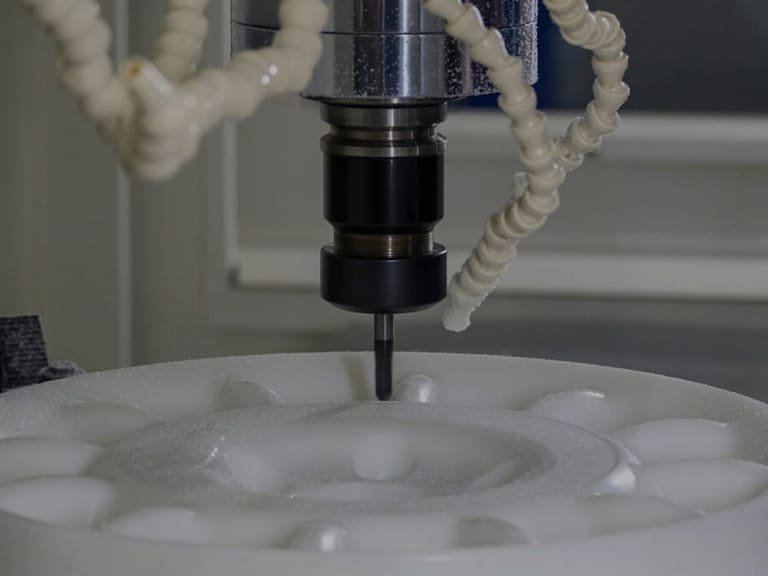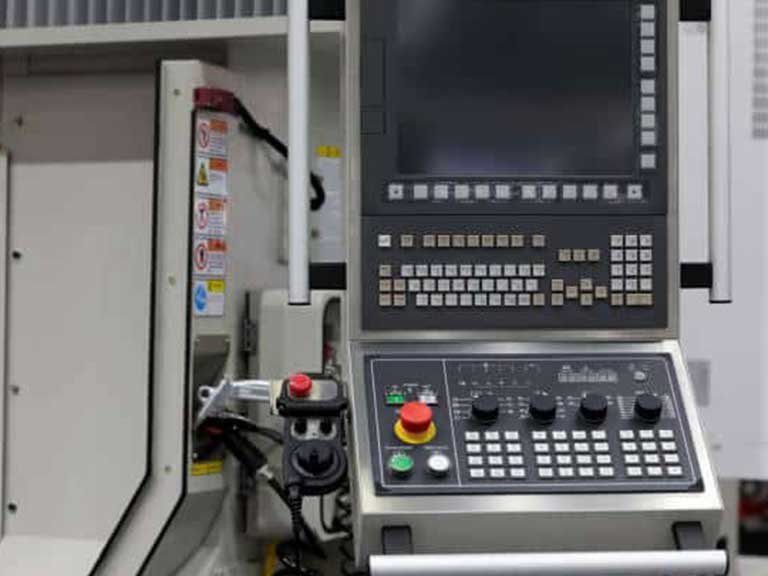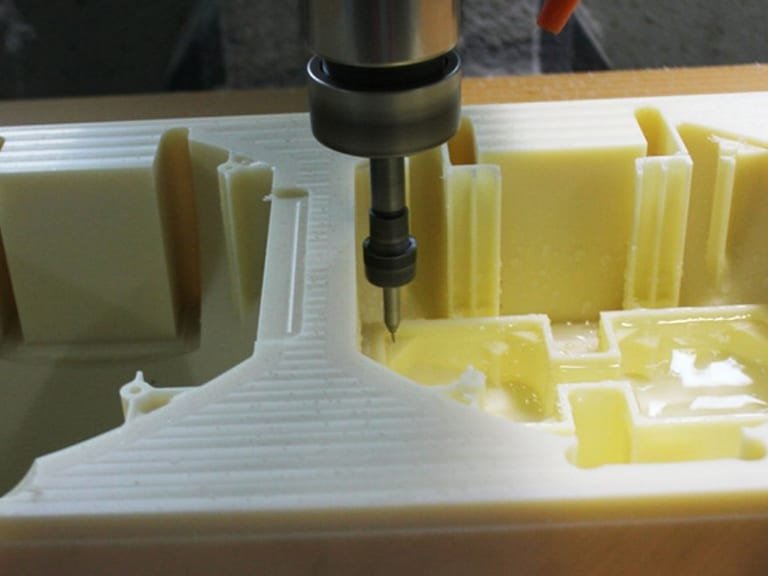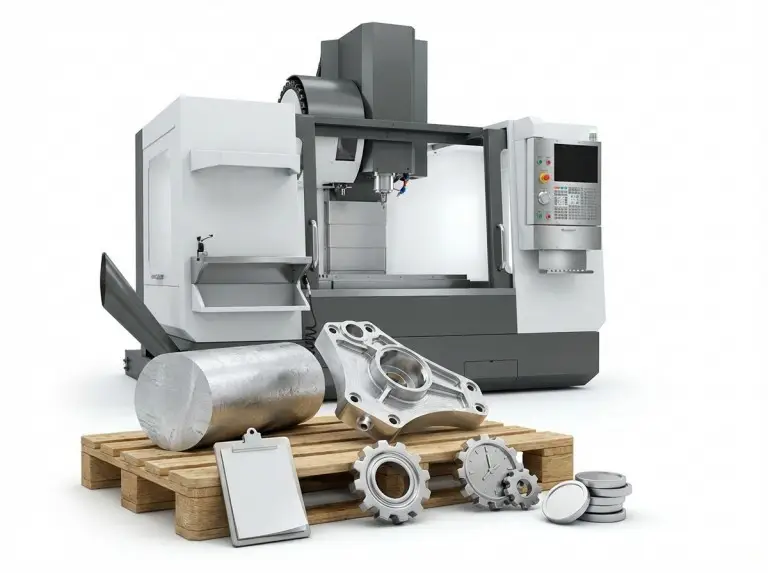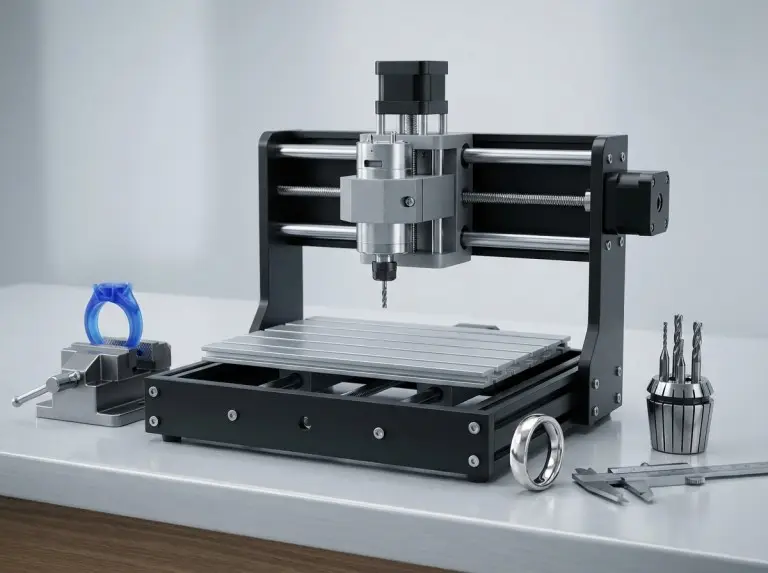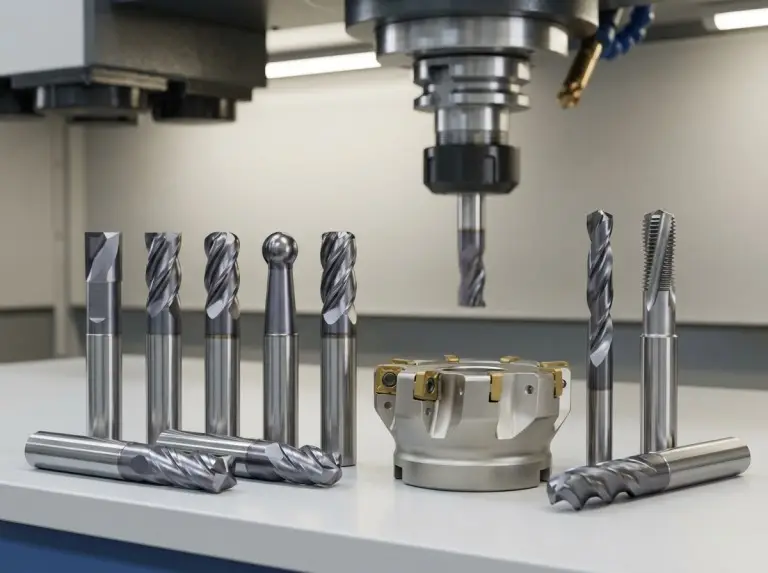In the realm of modern manufacturing, a pivotal question emerges: What distinguishes CNC plastic from metal CNC machining, and how do these differences influence production? Grasping the subtleties between plastic and metal machining is vital for engineers, manufacturers, and designers to make well-informed decisions.
At Yonglihao Machinery, we offer top-tier manufacturing solutions. These include metal stamping and CNC machining. The selection between plastic and metal materials profoundly impacts production costs, lead times, and product functionality. We delve into these distinctions and their implications for your manufacturing endeavors.
Understanding CNC Machining Fundamentals
What is CNC Machining? CNC machining is a computer-controlled subtractive manufacturing method. It employs computerized controls and cutting tools to remove material from a solid block, creating custom parts with precision. This process relies on G-code programming to manage tool position, speed, feed rate, and coordination, resulting in highly accurate components.
The Role of Materials in CNC Machining
Material selection is critical in CNC machining. It affects tool selection, cutting parameters, cooling requirements, and surface finish. In addition, the physical and chemical properties of the material determine its machinability. This further affects production efficiency, tool life, and part quality.
| Material | Machinability | Typical Applications |
| Aluminum | High | Aerospace, Automotive |
| Stainless Steel | Medium | Medical, Food Processing |
| ABS Plastic | High | Consumer Products, Prototyping |
At Yonglihao Machinery, our extensive experience with various materials enables us to optimize machining parameters for both plastic and metal components. This ensures superior results, regardless of material choice.
Material Properties: Plastics vs Metals
First, we should understand the basic properties of plastics and metals. This is crucial for determining whether they are suitable for CNC machining applications. On the other hand, the choice of these materials depends on their inherent properties. This is because these properties affect the machining process and the performance of the final product.
Key Properties of Engineering Plastics
Engineering plastics are characterized by their lower density, good chemical resistance, and excellent electrical insulation properties. Common engineering plastics used in CNC machining include ABS, Delrin (POM), Nylon, PEEK, and polycarbonate.
These materials offer advantages such as lightweight construction and chemical resistance. However, they have limitations in terms of high temperature resistance and mechanical strength.
Key Properties of Machining Metals
Metals, on the other hand, possess high strength and hardness, good dimensional stability, and excellent surface quality. Metals like aluminum, steel, and titanium are commonly machined for their robust mechanical properties.
The diverse mechanical properties of metals can be adjusted through alloying and heat treatment. This makes them suitable for a wide range of applications.
How Material Properties Affect Machining Processes
Material properties significantly impact the CNC machining process. For instance, the hardness of metals affects tool selection and wear rates. The thermal properties of materials influence the machining process and the final product’s dimensional stability.
As a professional prototyping company, Yonglihao Machinery has expertise in materials science. We can recommend the best material selection based on specific application requirements and performance needs.
CNC Plastic Machining VS CNC Metal Machining: Key Differences
Understanding the key differences between CNC plastic and metal machining is essential for achieving optimal results in manufacturing. The choice of material significantly influences the machining process, tooling, and final product quality.
Tooling Requirements
Different materials require different CNC cutting tools. For plastics, tools made from carbide or high-speed steel are preferred. These tools have optimized geometries and minimal coatings. On the other hand, metal machining demands tools made from high-performance carbide or ceramic. These tools must have advanced coatings to handle the abrasiveness and hardness of metals.
| Material | Tooling Material | Tooling Characteristics |
| Plastics | Carbide or High-Speed Steel | Optimized geometries, limited coatings |
| Metals | High-Performance Carbide or Ceramic | Advanced coatings, specialized geometries |
Machining Speeds and Feeds
The speeds and feeds for machining plastics and metals are quite different. Plastic machining uses slower cutting speeds (50-200 m/min) and conservative feed rates (0.1-0.5 mm/rev). This is to avoid heat buildup and material melting. Metal machining, however, requires higher speeds (up to 500 m/min) and moderate to high feed rates (0.2-1.0 mm/rev).
Cooling and Lubrication Needs
The cooling and lubrication needs for plastics and metals also vary. Plastics often use air cooling or minimal lubrication to prevent moisture absorption and contamination. Metal machining, however, uses water-soluble oils or synthetic fluids for cooling. This helps manage heat generation and prevent tool wear.
Dimensional Stability and Tolerances
Dimensional stability and achievable tolerances differ between plastics and metals. Plastics have higher thermal expansion coefficients and potential for moisture absorption, affecting tolerances. Metals, on the other hand, allow for tighter tolerances (±0.001″ to ±0.005″) compared to plastics (±0.002″ to ±0.010″).
At Yonglihao Machinery, our advanced CNC equipment and experienced operators ensure optimal results with both material types. We implement material-specific machining strategies and quality control measures.
Advantages of CNC Plastic Machining
CNC plastic machining offers several advantages. These include cost-effectiveness and enhanced product performance. This versatility makes it appealing across a wide range of industries.
- Cost-Effectiveness for Prototyping: CNC plastic machining is particularly beneficial for prototyping and low-volume production runs. The lower hardness of plastics compared to metals results in faster machining times and reduced tool wear. This leads to significant cost savings, making it ideal for product development phases with frequent design iterations.
- Weight Reduction Benefits: Plastic parts are generally less dense than their metal counterparts, making them significantly lighter. This weight reduction can be as much as 50-80%. It is particularly advantageous in applications such as aerospace, automotive, and portable devices where minimizing weight is crucial.
- Chemical and Corrosion Resistance: Most engineering plastics have excellent chemical resistance. Therefore, their performance in harsh environments is superior to that of many metals. This property makes plastic CNC machined parts suitable for use in chemical processing, marine applications, and medical devices where exposure to corrosive substances is a concern.
- Faster Production Times: Plastic CNC machining typically requires fewer secondary operations and simpler fixturing compared to metal machining. This streamlined process contributes to faster overall production times and reduced labor costs. It makes plastic machining a more efficient option for many applications.
Advantages of CNC Metal Machining
Metal CNC machining has many advantages. It is renowned for its ability to produce high-strength and high-precision components. We utilize this technology to manufacture parts that meet the most demanding specifications.
- Superior Strength and Durability: Metals like aluminum, steel, and titanium provide exceptional mechanical properties. These properties make them ideal for structural and high-load applications.
- Higher Temperature Resistance: Metal components can handle much higher operating temperatures than plastics. This is key for use in automotive, aerospace, and industrial settings where heat is a major concern.
- Better Dimensional Stability: Metals have better dimensional stability across different environmental conditions. They keep their shape well, even with temperature changes and over time.
- Surface Finish Quality: The surface finish of metal CNC machining is outstanding. It can achieve mirror-like surfaces, with Ra values as low as 0.2μm, thanks to the right tools and machining settings.
Industry Applications and Use Cases
Precision components are vital across many industries. CNC machining of plastics and metals is crucial for meeting these needs. Its versatility makes it suitable for everything from prototyping to producing final parts.
- Ideal Applications for Plastic CNC Parts: Plastic CNC parts are perfect for applications where weight reduction, chemical resistance, and electrical insulation matter. They’re used in medical devices, electronics enclosures, and aerospace components.
- Ideal Applications for Metal CNC Parts: Metal CNC parts are best for applications needing high strength, durability, and temperature resistance. They’re used in automotive engine components, aerospace structural parts, industrial machinery, and tooling.
Different industries have unique needs for CNC machined parts. For example, aerospace needs lightweight yet strong components. Medical requires biocompatibility and sterilization. At Yonglihao Machinery, we offer customized metal processing solutions that meet these standards. This can ensure your components work well in their intended use.
Cost Considerations: Comparing Plastic and Metal CNC Machining
Understanding the cost differences between CNC machining for plastics and metals is key for budgeting. The choice between materials impacts raw material costs, machining times, tool wear, and post-processing needs.
- Material Costs and Machining: Material costs vary widely between plastics and metals. Plastics like ABS and acrylic are more affordable. Yet, specialized plastics like PEEK and Ultem can be quite pricey. On the other hand, metals range from affordable options like aluminum to premium materials such as titanium and Inconel.
- Machining Time, Labor, and Tool Wear: Plastics are quicker to machine due to their softer nature. This results in less tool wear and potentially lower labor costs. Metals, however, demand more from tools but can be cost-effective in large quantities due to efficient machining.
At Yonglihao Machinery, we aim to reduce CNC machining costs without compromising quality. This ensures competitive pricing for precision components.
Conclusion
Choosing the right material for your CNC project is key to achieving optimal performance and cost-effectiveness. We’ve highlighted the main differences between CNC plastic and metal machining. Plastic machining excels in creating lightweight, cost-effective prototypes. Metal machining, on the other hand, is better for high-strength, temperature-resistant parts.
At Yonglihao Machinery, our expertise in metal processing makes us your ideal partner for precision metal components. We encourage you to consult with our engineering team to find the best material for your CNC project.
FAQ
What are the main differences between CNC plastic machining and CNC metal machining?
The main differences are in material properties, tooling needs, and machining processes. Plastics are softer and more prone to melting, while metals are harder and more durable. This affects the choice of tools, machining speeds, and cooling systems.
How do material properties affect the machining process?
Material properties like density, melting point, and hardness impact machining. For instance, plastics with low melting points need careful handling to avoid deformation. Metals with high hardness require specialized tools to prevent wear.
What are the advantages of CNC plastic machining?
CNC plastic machining is cost-effective, reduces weight, and offers chemical resistance. It’s ideal for applications where these properties are crucial, such as in electronics and medical devices.
What are the advantages of CNC metal machining?
CNC metal machining provides superior strength, durability, and high-temperature resistance. It’s suitable for applications requiring these properties, like aerospace and automotive industries.
How do I choose between CNC plastic machining and CNC metal machining for my project?
The choice depends on your project’s specific needs, including material properties, dimensional tolerances, and production volume. We can help you evaluate these factors and select the most suitable option.
What factors affect the cost of CNC machining?
The cost of CNC machining is influenced by material costs, machining time, tool wear, and post-processing requirements. We can help you optimize these factors to achieve the best value for your project.
Can CNC machining produce complex shapes and geometries?
Yes, CNC machining can produce complex shapes and geometries with high precision. Both plastic and metal materials can be machined to achieve intricate designs and features.
What are the typical applications for CNC plastic and metal machining?
CNC plastic machining finds its way into various sectors. It’s crucial in the production of electronics, medical devices, and everyday consumer goods. On the other hand, CNC metal machining is pivotal in sectors like aerospace, automotive, and industrial equipment. This highlights the versatility and importance of these machining techniques in modern manufacturing.



